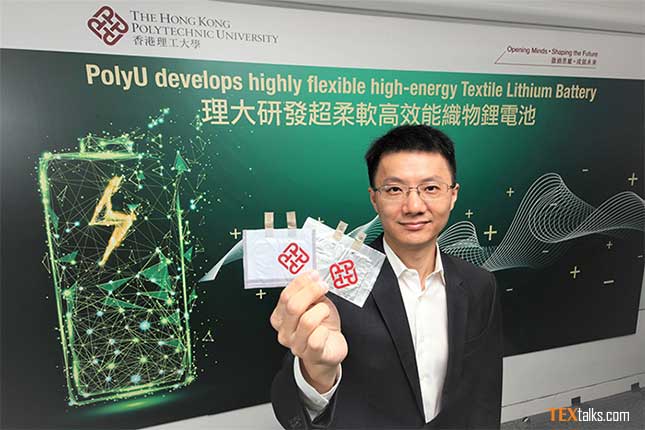 Li-batteries have revolutionized the current life by offering high energy supply for smart application. Researchers at The Hong Kong Polytechnic University (PolyU) have developed highly flexible, high-energy Textile Lithium Battery that offers more stable, durable and safe energy supply for wearable electronics. Novel batteries can be used in healthcare monitoring, intelligent textiles, smartphones, Global Positioning System (GPS) tracking and Internet of Things (IoT).
Li-batteries have revolutionized the current life by offering high energy supply for smart application. Researchers at The Hong Kong Polytechnic University (PolyU) have developed highly flexible, high-energy Textile Lithium Battery that offers more stable, durable and safe energy supply for wearable electronics. Novel batteries can be used in healthcare monitoring, intelligent textiles, smartphones, Global Positioning System (GPS) tracking and Internet of Things (IoT).
Highly conducted metals such as copper and nickel are uniformly deposited on pre-treated fabrics. The conductive fabrics with low sheet resistance and high surface area act as current collector. The metallic fabrics, after adding active materials to act as cathode and anode, together with separator and electrolyte were assembled into Textile Li-Battery.
Compared to the conventional low energy density, heavy weight and hard batteries the Textile Li-Batteries are light weight, dominant rechargeable batteries with high energy density (more than Wh/L), excellent flexibility — with bending radius of less than 1mm, mechanical robustness and stability (with foldability of over 1,000 cycles with marginal capacity degradation).
The Textile Li-Battery, of less than 0.5 mm thick, also possesses fast charging/discharging capability, and long cycle life. Safety tests conducted by continuous hammering, trimming with scissors and penetrating with nail proved the battery can stably provide power output for the electronic components with no risk of catching fire or burst.
This innovative by researchers of PolyU’s Institute of Textiles and Clothing (ITC) got three prizes at 47th International Exhibition of Inventions of Geneva held in April 2019. The team leader at ITC, Professor ZHENG said, “Wearable technology has been named as the next global big market opportunity after smartphones and forecasted revenue from them would reach to US$100 billion by 2024. The Textile Li-Battery offers promising solution to wide range of next-generation applications”.



